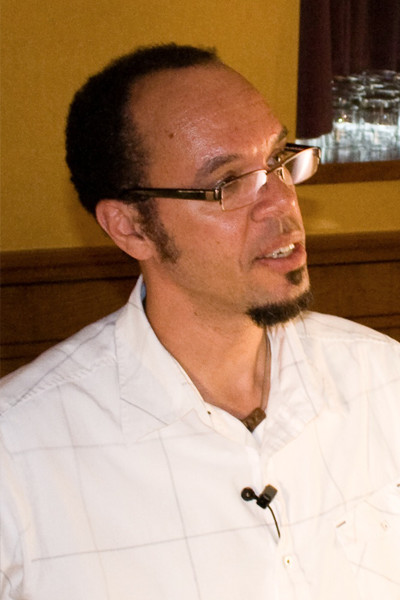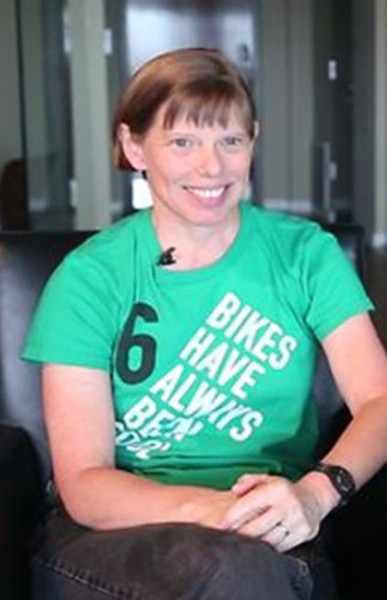Nordic Ruby 2016
June 17-19, Stockholm, Sweden
Speakers
Arjan is a thirty-something software developer, historian and all-round geek who enjoys writing Ruby and is lucky enough to get paid to do so at Brightin. He tries to be the best person he can be and enjoys helping others do the same. Also, he is happily married, a father-of-two and he likes explaining history trivia to his genial dog—who, frankly, is the only one who’ll listen.
Beating Impostor Syndrome
Arjan is terrified that some day, someone will find out he’s not actually a good software developer. He was just faking it all along. He doesn’t really belong here, among all these competent people.
These are dangerous thoughts that will hinder creativity, confidence and lead to missed opportunities. Many people in many fields have to deal with impostor syndrome, but it’s especially harmful to the software development community. This is a personal account of dealing with impostor syndrome as a software developer, a guide for dealing with impostor syndrome in development teams and a challenge to everybody else to have the courage to be awesome.
Ben has been drawing for a lot longer than he’s been writing software, but it’s only in the past year and a half that he's actually started to see the things he’s drawing—so really, he’s been making tradeoffs blind for quite a while. He's pretty sure that the tradeoffs that turned out best (in art, in code, and in life) are the ones that he knew he was making.
Learning to See
The hardest part about learning how to draw is figuring out that you have to draw what you see, instead of what you think you see. An eye isn’t really shaped like a(n American) football with a bullseye in the middle. A smile is much more than a bowed line on a circle-shaped head. At a certain point, we all learn to replace what we see with symbols that we agree mean the thing-seen, and we fail to realize that we’ve made a huge tradeoff: we give up accuracy for faster, easier communication.
We make that same tradeoff all the time in different domains, and almost always without even noticing. This talk is about learning to see again, and how that can lead to better drawings and better software.
Ernie has been gaming for over 33 years and programming professionally for over 18 years. He has so far managed to live life with a K/D ratio of 0.0.
How to Practice Like an MLG
Based on a statistically-significant sample size, we can guess that it is likely that you first started programming because of a fascination with video games. So did Ernie.
With over 33 years of experience playing video games, Ernie felt qualified to call himself an “expert”. Then, Destiny happened. No, not fate. The video game. And Ernie discovered that he was objectively terrible at it.
Following this realization, he embarked on a journey to “git gud” at a video game that taught him surprising lessons about practicing, and how he’d been doing it wrong all these years.
Katrina is an open source advocate at GitHub. She accidentally became a developer while pursuing a degree in molecular biology. When programming, her focus is on automation, workflow optimization, and refactoring. She works primarily in Go and Ruby, contributes to several open source projects, and is the creator of exercism.io.
Cultivating Instinct
As novices we slowly and laboriously sift through a chaotic flood of minutia. To experts the significant details are obvious. Irrelevant details fade to the background. The novice receives a jumble of meaningless impressions; the expert sees patterns and meaning.
Somehow experts have made the trek from “How could you possibly tell?” to “How could you not?”. And they probably can't tell you how they got there.
This talk examines the topic of perceptual learning through the lens of theory and practice—research and anecdotes—and speculates how it can be deployed strategically to train new experts.
Keavy is a software engineer at GitHub. Previously, as an independent consultant, over the previous decade, she has enjoyed pairing up with some of the top development shops across Europe and the U.S. Like many of her fellow Irishmen, Keavy enjoys telling a good story. Unlike many, she trains for Ironman triathlons and is not a fan of whiskey.
How to Mend a Broken Identity
There are times in our lives when things don’t go according to plan, when we want or need to re-identify ourselves. Perhaps because our identity has been taken away from us against our will, or because of an unfortunate event, or because it is time to rediscover our true selves. If your idea of your world, and your role within it, is challenged, how can you best respond?
Kinsey is a software engineer at GoSpotCheck in Denver, Colorado. She co-founded Kubmo, a non-profit dedicated to building technology curriculum for women’s empowerment programs around the world. She is the chair of the BridgeFoundry board and is obsessed with dogs, especially her dog, Harleigh.
Refactoring for Readability
We have no problems justifying a refactoring effort when it improves performance or eliminates a code smell. But there is a way your refactoring could be even more impactful.
One of the most costly and time-consuming things we do is onboarding. It takes an incredible amount of effort to bring a developer up to speed on a new codebase. In this talk, we’ll see three real-world readability refactors, discuss how you can apply these techniques for the benefit of your current (and future) team members, and how we can continue to program with empathy in mind.
Nadia co-founded Ignition Works in order to find fun and sustainable ways to build worthwhile software products. She has taught good engineering practices through pair programming at Pivotal Labs and on their Cloud Foundry team. She originally learnt to code at Makers Academy and she runs the Ruby Book Club podcast in her spare time.
A Guide to Code Hospitality
You were living alone in the town of Ruby-on-Rails until you decided to open up your spare room to guests. Now your first visitor has booked in. Her arrival is imminent.
How do you prepare? How can you make sure she has a great visit?
Let’s explore the art of code hospitality—working on codebases in a way that respects your teammates and provides for their needs. By working hospitably, we can facilitate team productivity and help new members quickly feel at home.
Raganwald is proof that somewhere, a combinatory forest is missing its Idiot Bird. He suffers from an incurable and highly infectious brain syndrome that makes him enjoy programming for its own sake.
Optimism
Reginald lives with depression. In this talk he will share Dr. Martin Seligman’s three techniques for reprogramming our brains to think optimistically, and explain how they have helped him feel better, accomplish more, and be a better member of the Ruby community. Whether you have ever struggled with your mood or not, they just might help you change your life.
Cyclist, Rubyist, reluctant author, obsessive programmer, recalcitrant blogger and the antidote for ambition.
100 Miles of Hill
An exploration of the research on “Grit”, interleaved with the story of writing Practical Object-Oriented Design in Ruby, and the tale of a horrendous bike ride. By the end you’ll want a new bike, despair of writing a book, and be determined to change the world.
Zach Holman is a developer living in San Francisco. He joined GitHub in 2010 as one of their first engineering hires and helped build and grow their product and culture over five years. He does a lot of public speaking about creating happy, productive software teams, and occasionally gets fired from companies just so he can give talks about it to you demanding people ARE YOU HAPPY YET JEEZ
Firing People
People don’t talk about getting fired. We come up with euphemisms: “I’m funemployed!”, or “I’m looking for my next journey!” That’s strange, when you think about it, given that it’s a fairly normal event that happens from time to time. But mostly it’s tragic, because unless we start talking about firing and getting fired, we can’t begin to start improving this very real—and often very painful—process.












